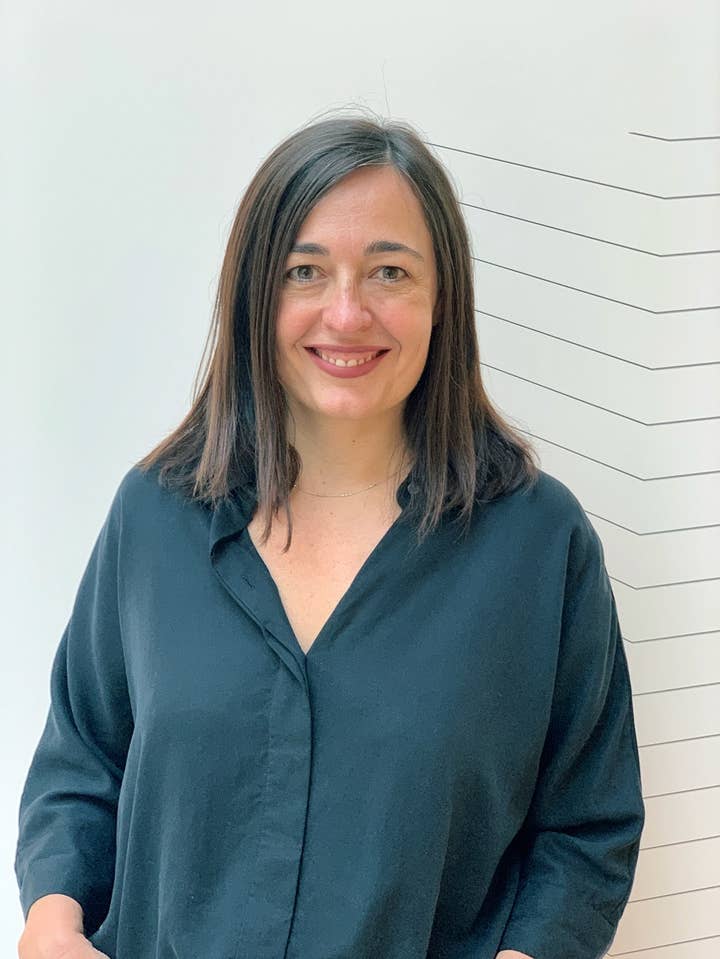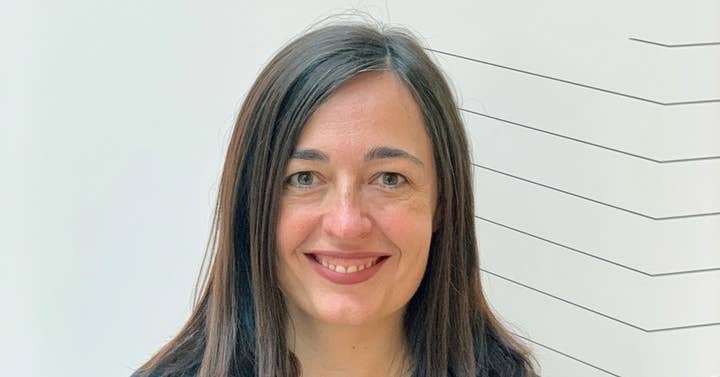Dontnod Montreal on recruiting for gender balance
Managing director Frédérique Fourny-Jennings shares how the studio's recruitment approach led to women making up almost half the team
In an industry that has struggled to become a more welcoming place for women, Dontnod Montreal has achieved the rare feat of having a gender breakdown that nearly matches that of the general population.
Founded in 2020, the Canadian outpost of the Life is Strange development studio has grown to a staff of 33 employees, 16 of them women. Dontnod Montreal's Frédérique Fourny-Jennings tells the GamesIndustry.biz Academy that didn't happen by accident.
Fourny-Jennings says the push started with Dontnod Montreal's studio executive producer Luc Baghadoust and studio creative director Michel Koch.
"When they initially reached out to me for the managing director position, they shared the vision they had for the studio. Although we are a Dontnod studio and Dontnod is quite known for strong values around inclusivity and diversity, they had a strong idea of what they wanted to put in place for a studio in Montreal. As they were telling me about this, that's what struck me: the [values] you could find in Dontnod games were totally relating to what they wanted to be in the studio, if that makes sense."
"The [values] you could find in Dontnod games were totally relating to what they wanted to be in the studio"
Fourny-Jennings says she saw the Dontnod position as an opportunity to consider how she would go about recruiting herself and extrapolate that out to pitches and practices that would appeal to women in the industry as effectively as men.
"What can we do create this kind of environment where we make women feel they can apply to our company? Or promote an environment they would consider safe? All these things I was doing without thinking too much about it because that was just my way of doing recruitment, we wanted to make it more a practice, more the norm."
Start with the job posting
As a new studio, Dontnod didn't have a reputation as an employer in the Montreal scene, so sourcing candidates was a key challenge. And when they had an applicant, Fourny-Jennings wanted to be sure the process wasn't going to filter out good people, starting with the way job postings were written.
"First of all, we wrote our job postings with inclusive female and male writing in French," she says. "It was important that people when reading our job postings can relate and for that, you need to be able to read the job posting as if it is addressed to you."
"You need to be able to read the job posting as if it is addressed to you"
She adds that they also wrote postings with less restrictive requirements, not putting education pre-requisites or asking for years of experience. (She notes that she has seen job postings asking for ten years of experience with a tool or in a job title that didn't exist ten years ago.)
Instead, Dontnot Montreal focuses its postings more on qualifications like familiarity with key tools and letting candidates know what the studio is looking for and what the work will be.
"We don't make things mandatory," Fourny-Jennings says. "We don't tell people reading our job postings that if you don't have this specific skill, education, or ability, you cannot apply... Maybe this is crazy, but we rely on the fact that the people who apply will do it because they feel they can bring something and be a great addition to the team."
Studio culture and recruitment: A virtuous cycle
One advantage Dontnod Montreal definitely had in attracting a wide array of applicants was the Dontnod brand's reputation for making narrative-focused games with a diverse assortment of protagonists. As the Montreal studio was just getting off the ground, Dontnod was making headlines for Tell Me Why, an adventure game starring a trans protagonist published by Xbox Games Studios.
Fourny-Jennings concedes that reputation probably made it easier for the company to attract women than a studio working on more standard AAA fare would, but adds, "I also believe our games are what they are because of the people, so it's a virtuous circle."
However, that's not to say a roughly equal gender split is out of reach for studios working on mainstream AAA fare, as Fourny-Jennings thinks her recruitment approach would if hiring for such a studio would vary only modestly.
"Maybe the initial attraction or perception of the studio would be different, but it's about the studio culture and the way we demonstrate our practices, what we can show about equity and how we make people feel that they're more of a cultural addition and a culture fit," she says.

"Anyone who is coming from another organization with previous experience or just from school is bringing something new to the organization, and that should be an addition, not a fit. Of course you want to share some common values, but it's a two-way street thing. It has to be good for the hiring team and the organization, but it also has to be good for the person.
"The product you make, whatever it is, will of course impact on the brand and the image you have as an employer, but in the end, it should feel as an individual that you're in agreement with the product."
Beyond that, Fourny-Jennings focuses on the studio environment, the way the recruiters and hiring managers are trained, the way equity and internal mobility are being managed, and the way the studio culture comes across to applicants.
"We have a pretty good and competitive compensation offer, but we don't necessarily have all the perks some other bigger studios have," she says. "But I know this is not necessarily what will tilt a candidate on an offer. It's about the environment where they're going to be working every day.
"The whole recruitment process is about making sure that at the end of the day, the candidates will choose to accept or refuse our offer with the feeling that we will have answered all the questions they have to make the best decision for themselves."
Or to put it more bluntly, "It's not about a set of values you put on the wall, right? It's how people can project themselves living and working in that environment."
Correcting perceptions
While Fourny-Jennings is happy with the percentage of women at Dontnod Montreal, she can't be focused on hitting any specific number with it when deciding on applicants.
"When we are looking at any application, we're not putting warm bodies in seats," she says. "I'm not filling positions to meet stats. It's really about if we feel our candidate is a good one. I want to find a way to ensure that women are represented in these positions, we tend to reassure them about perceptions they may have."
That could mean correcting misconceptions an applicant has about work-life balance, or what actually qualifies them for a leadership position. Fourny-Jennings notes that when she was up for the managing director position with the studio, she wasn't sure her resume was impressive enough to warrant the post.
"When we are looking at any application, we're not putting warm bodies in seats"
"Sometimes it's the idea people have about leadership and what comes with it, and the way it's going to fit (or not) with their personal lives or their ideas," she says. "We encourage them to apply for these positions although they don't necessarily perceive themselves as fit for the job."
Another misconception she says people often have is that being hired into a leadership role means a person must be self-sufficient in that role. Dontnod Montreal tries to ensure ongoing mentorship and training to provide support for its leaders even after they are hired.
"It's important to listen to them, to see how we can support them in reaching their development goals," she says.
Downsides
While Dontnod Montreal obviously believes its approach to recruiting works, it does have some drawbacks compared to the status quo.
One obvious issue is that when you write job postings specifically to avoid discouraging people from applying, people will not be discouraged from applying.
"The downside of that is that you potentially receive a lot of irrelevant applications," Fourny-Jennings says. "But still, within these, you find real gems."
Those applicants who aren't a great fit still take time to vet, whether the mismatch is obvious from the get-go or whether it doesn't become clear until the interview process.
"For us, doing things this way slowed us down a little bit," Fourny-Jennings says. "For sure it affects your recruitment velocity, so that's something to factor in.
"You need to be open to all the possible consequences of taking the time to recruit, to see more people, to see less evident people that you bring into your process"
"I'm not naive, I know we're giving ourselves a luxury by taking more time to see more people instead of jumping on the first evident candidate. And I'm very aware, having worked in very different types of organizations, that sometimes you have production requirements that mean you don't have that luxury. So that's something to take into consideration. It means you need to chart your recruitment earlier, if that's possible."
And as much as a studio may want to have a workforce reflecting the diversity of its audience at every level and in every department, the labor pool may not always reflect that, which again means more time and effort going into the recruitment process.
"Today if you're looking for an online programmer and you would like this online programmer to potentially be a woman, that may be quite a challenge," she says. "There are some, but there are not that many. You need to be open to all the possible consequences of taking the time to recruit, to see more people, to see less evident people that you bring into your process. For sure it's an investment. More time means more people interviewing, and that means they're not producing at that time. But I believe it's a good investment, at least for us."
Only a start
Of course, women aren't the only under-represented group in game development. We ask Fourny-Jennings if Dontnod Montreal has been as intentional about pursuing applicants of various marginalized identities as it has been about women and she says it has not yet.
The studio doesn't have a dedicated diversity, equity, and inclusion executive, for example.
"It's about making everything possible for anyone to feel that they can apply"
"For me it's not a project, it's a way to be," Fourny-Jennings says, "So we don't handle it that way. We handle it in a way where we feel we create an environment that is respectful for everyone. I'm not about stats. It's about making everything possible for anyone to feel that they can apply, that they can have their application fairly looked at and processed, that they can interview in the safest and most fair environment."
She adds, "Driving awareness and conversation on diversity is of course a good thing. For me, we need to start somewhere. And I don't want to have conversations that are masking a lack of real action and progress, if that makes sense."
So while the studio's efforts to diversify aren't yet ideal, Fourny-Jennings believes the studio is off to a good start.
"For me, it's all about the intent... to build this kind of environment where the key messages are about inclusion in general and becoming something natural within the whole studio," she says. "The goal is to have a balanced, diverse, and inclusive team is a message that needs to infuse and be part of the studio culture."
More GamesIndustry.biz Academy guides to Working in Games
Our guides to working in games cover various perspectives, from hiring to retention, to landing the job of your dream or creating the right company culture:

